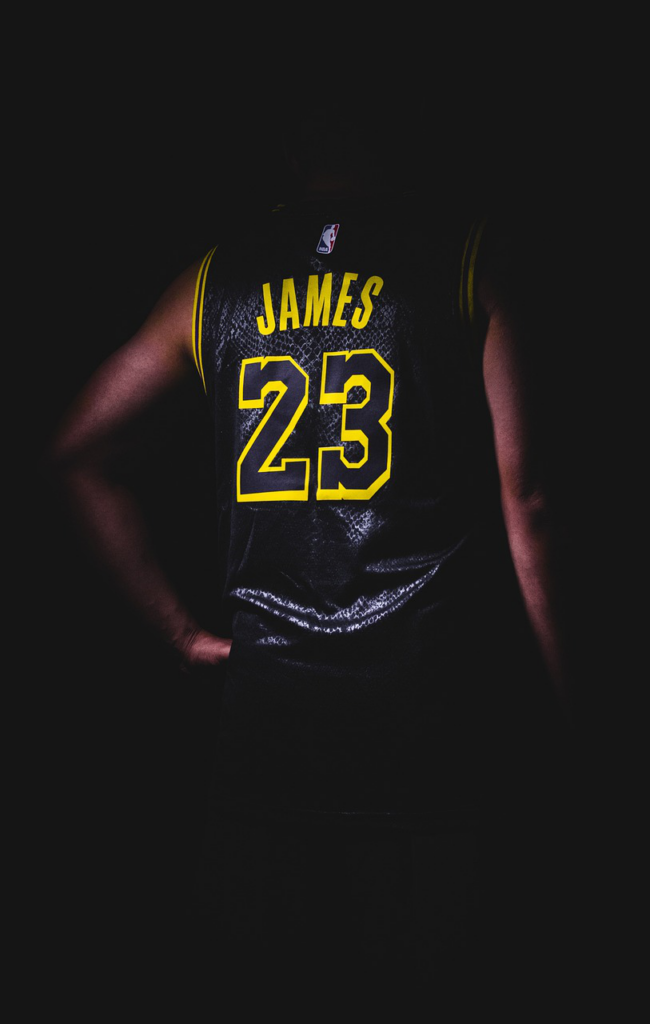MITCHELL HORUCY
Asst. Sports Editor

Image via pixabay.com.
When it comes to the G.O.A.T. of basketball, there’s one clear answer: LeBron Raymone James Sr.
In almost every aspect of the game, he’s one of, if not the best of all time.
Getting right into it, here are some head-to-head stat comparisons between the two.
LeBron currently leads Jordan in the following per-game stats:
- Rebounds
- Assists
- Blocks are tied
- Field goal percentage
- 3-point field goal percentage
Jordan leads LeBron in points-per-game by about three points, but LeBron was never labeled as a “dominant scorer,” even dating back to his high school and early NBA days.
Some accolades LeBron has over Jordan are First-Team All-NBA, All-NBA appearances and All-Star appearances.
Jordan has him beat in All-Defensive team appearances, but only by one.
He also has a lone Defensive Player of the Year award, something LeBron doesn’t have, even though LeBron should have one for his 2012-2013 season, but I digress.
A stat that LeBron blows most people out of the water in — even Jordan — is triple-doubles.
This is when you record 10 or more of three different stats.
For example, 10 points, 10 rebounds and 10 assists is the most common way to record one.
In Jordan’s career, he recorded a total of 28 triple-doubles, and LeBron is at 116 and counting.
The biggest talking point Jordan truthers use is Jordan’s 6-0 NBA Finals record.
LeBron does have a losing record in the finals at 4-6, but that’s four more times than Jordan made it.
Jordan didn’t make his first finals until his seventh season in the league, while LeBron reached the finals in his third year.
While it took Jordan two fewer years to hoist the Larry O’Brien Trophy, LeBron was still a year younger than Jordan when he finally got his hands on one.
Another argument frequently used is that LeBron played with more All-Stars in his career, which is true by definition, but it doesn’t tell the whole story.
Let’s take the 2009-10 and 2010-11 Cleveland Cavaliers and use them as an example. In the last season LeBron played there, 2009-10, the team went 61-21, finishing first in the Eastern Conference. The following year, in their first season post-LeBron, they went 19-63, good for last in the East.
Now we travel to South Beach and the Miami Heat, LeBron’s second stop in his career. In the 2013-14 season, the team went 54-28, losing in the NBA Finals. The next season, they went 37-45 and missed the playoffs, but guess who wasn’t on the team: LeBron James.
One more time for good measure: LeBron went back to Cleveland to bring the city a championship. He did so by having the best comeback in NBA history and a top-five comeback in sports history, but I digress. In his last season in Cleveland, the Cavs went 50-32, losing in the finals. The next season, they went 19-63, good for second last in the East.
Now, let’s switch our focus to Jordan — surely the numbers will be similar.
After winning three straight championships, Jordan had to “step away” from the NBA, which basically was a suspension for gambling, but I won’t get into that. In his season away, his team went 55-27, losing in a seven-game series to the eventual runner-up New York Knicks.
I’ll close up my argument with one word: consistency.
LeBron has played 22 seasons in the NBA, and he’s played 87% of the games he could’ve played since he entered the league.
He hasn’t had less than 10 points in an NBA game since January 5, 2007.
I was 2 years old at that time.
I’m now a junior in college.
At age 40, soon to be 41, he’s the best basketball player to ever live, and it will be that way for a long time.
